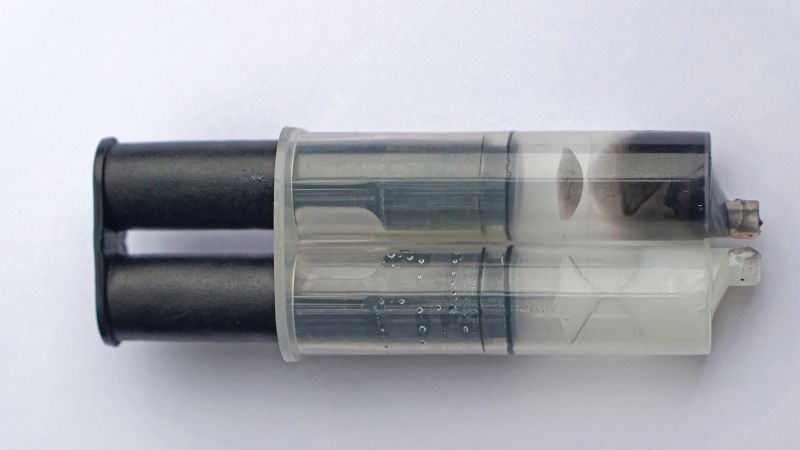Top-Rated Products for Epoxy Injection Crack Sealing and Repair
Select from popular epoxy injection products designed to deliver seamless, lasting repairs for various concrete cracks.
 Epoxy injection crack repair products are essential tools for addressing structural cracks in concrete and masonry. These products are designed to penetrate deep into cracks, providing a strong bond that restores the integrity of the structure. Proper application of epoxy injections can help prevent further deterioration and maintain the stability of foundations, walls, and slabs. When selecting epoxy injection products, it is important to consider factors such as viscosity, curing time, and compatibility with different substrates.
Epoxy injection crack repair products are essential tools for addressing structural cracks in concrete and masonry. These products are designed to penetrate deep into cracks, providing a strong bond that restores the integrity of the structure. Proper application of epoxy injections can help prevent further deterioration and maintain the stability of foundations, walls, and slabs. When selecting epoxy injection products, it is important to consider factors such as viscosity, curing time, and compatibility with different substrates.
Top Overall Option
High-Performance Epoxy Injection Kit
A comprehensive epoxy injection kit that includes multiple cartridges, injection ports, and a manual pump ensures a versatile and reliable crack repair process. Its formulation is suitable for a wide range of crack sizes and provides durable adhesion, making it a popular choice among professionals and DIY enthusiasts alike.
Types of Products For Epoxy Injection Crack Repairs
Epoxy Injection Resin (Viscous)
Thick, high-viscosity epoxy designed for filling wider cracks and preventing leakage during injection.
Low-Viscosity Epoxy
Thin, flowable epoxy ideal for penetrating narrow or hairline cracks.
Hybrid Epoxy-Polyurethane
Flexible formulations suitable for cracks subject to movement or vibration.
Injection Ports and Nozzles
Specialized hardware to facilitate precise epoxy delivery into cracks.
Epoxy Cartridge Systems
Pre-measured cartridges that simplify mixing and application for consistent results.
Surface Sealants and Sealers
Materials used to seal the surface around cracks to contain the epoxy during injection.
Epoxy Pump Systems
Manual or pneumatic pumps designed to inject epoxy under controlled pressure.
Crack Cleaning Tools
Wire brushes, compressed air, and solvents to prepare cracks before injection.
Curing Accelerators and Additives
Products that modify curing times or enhance adhesion.
Flexible Epoxy Sealants
Sealants used to close the surface after injection for added protection.
Popular Choices
Widely used epoxy formulations suitable for a variety of crack repair scenarios.
Two-part epoxy that provides strong adhesion and durability.
Designed for ease of use in overhead applications, ensuring proper crack sealing.
Specialized tools and epoxies optimized for vertical surface repairs.
Formulations that cure quickly to minimize downtime.
Ideal for cracks that experience movement or expansion.
Thick epoxy for filling larger or active cracks.
Complete kits with multiple ports and accessories for efficient repairs.
Formulations resistant to moisture, suitable for damp environments.
Versatile products compatible with various substrates and crack types.
A successful crack repair process often involves cleaning the crack thoroughly to remove debris and loose material, followed by sealing the surface to prevent epoxy leakage. The injection process requires specialized equipment such as injection ports, pumps, and cartridges, which facilitate precise delivery of the epoxy into the crack. Different formulations are available to suit various crack widths and conditions, from narrow hairline fractures to wider, more active cracks.
In addition to traditional epoxy resins, there are hybrid formulations that combine properties of epoxy and polyurethane, offering flexibility and adhesion in dynamic environments. Some products are designed specifically for vertical or overhead injections, ensuring ease of use in challenging locations. Proper curing and finishing techniques are critical to achieving optimal results, and many products come with detailed instructions to guide users through the process. Investing in quality epoxy injection products can significantly improve the longevity and safety of concrete structures.
Key Buying Considerations
- Compatibility with existing concrete or masonry materials
- Viscosity suited to crack width and type
- Curing time appropriate for project schedule
- Ease of mixing and application, especially for DIY users
- Availability of compatible injection hardware and accessories
- Durability and adhesion strength of the epoxy formulation
- Resistance to environmental factors such as moisture and chemicals
- Flexibility of the product if cracks are expected to move
- Surface preparation requirements before application
- Shelf life and storage conditions of the epoxy products
- Cost-effectiveness relative to project scope
- User reviews and manufacturer reputation
- Compliance with safety standards and regulations
- Ease of cleanup and disposal after use
- Compatibility with other repair materials used in the project
